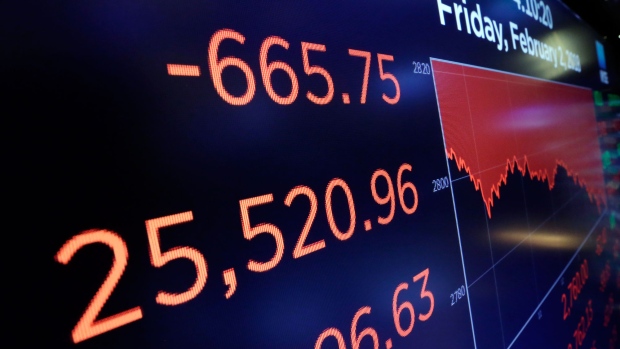Asia markets posted healthy gains in Friday trade after official data in China showed the coronavirus pandemic had not hit economic growth as badly as some had feared.
Authorities closed factories, halted construction work and imposed drastic lockdowns among other efforts to contain the outbreak after it emerged in the central industrial city of Wuhan late last year. Life in China has since gradually begun returning to normal after the quarantine measures choked the world’s second-largest economy. Official data showed a 6.8-percent contraction last quarter — the first negative growth reported since the country began logging quarterly data in the early 1990s.
The result was slightly better than the 8.2-percent fall forecast by economists in a poll, though analysts in China and abroad have long harbored doubts about the accuracy of official GDP data.
Other figures showed a sharp drop in domestic demand, with many shoppers staying at home and avoiding crowds due to fears of a resurgence in virus cases. But on-year industrial production data, down just 1.1 percent last month, was a positive sign that the Chinese economy was returning to a position of strength, said AxiCorp chief market strategist Stephen Innes. “The production side of the economy is normalizing, and end-consumption will follow,” he said in a note. Hong Kong and Tokyo were all up by more than two percent in morning trade, while Shanghai was 0.7 percent higher and all other major Asian bourses were in positive territory.
Trump eyes US reopening
Wall Street equities finished higher as Donald Trump laid out guidelines for a gradual reopening of the US economy. The president faces re-election in November and has been impatient to lift a lockdown that has thrown 22 million people out of work in the world’s largest economy.
“We are having very productive calls with the leaders of every sector of the economy who are all-in on getting America back to work, and soon,” Trump said on Twitter. But business leaders have said more widespread testing for coronavirus is essential before the economy can move significantly towards normality. The tentative plans to get America working again brought some stability to oil futures, which are reeling from fears of a devastating supply shock caused by the pandemic.Prices have suffered massive falls as the virus outbreak triggers worldwide lockdowns and travel restrictions that have throttled demand, while a Saudi-Russian price war compounded the crisis.
Innes said US economic data and the IMF’s warning of the worst global downturn since the Great Depression of the 1930s were a “reality check” for hopes of a quick recovery in energy markets. West Texas International is down more than 12 percent for the week and back near 18-year lows, while Europe’s Brent was down 10 percent since Monday.




